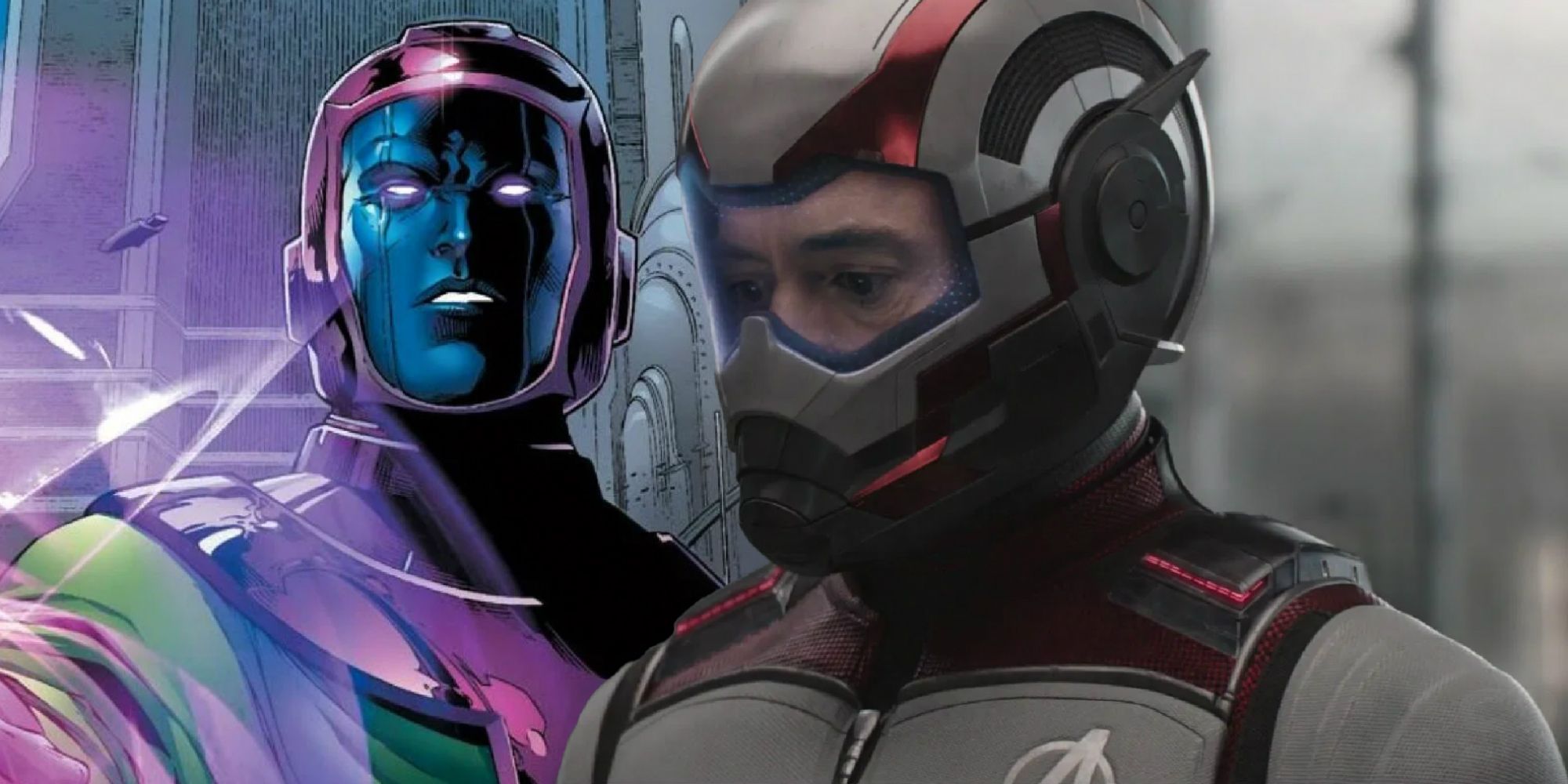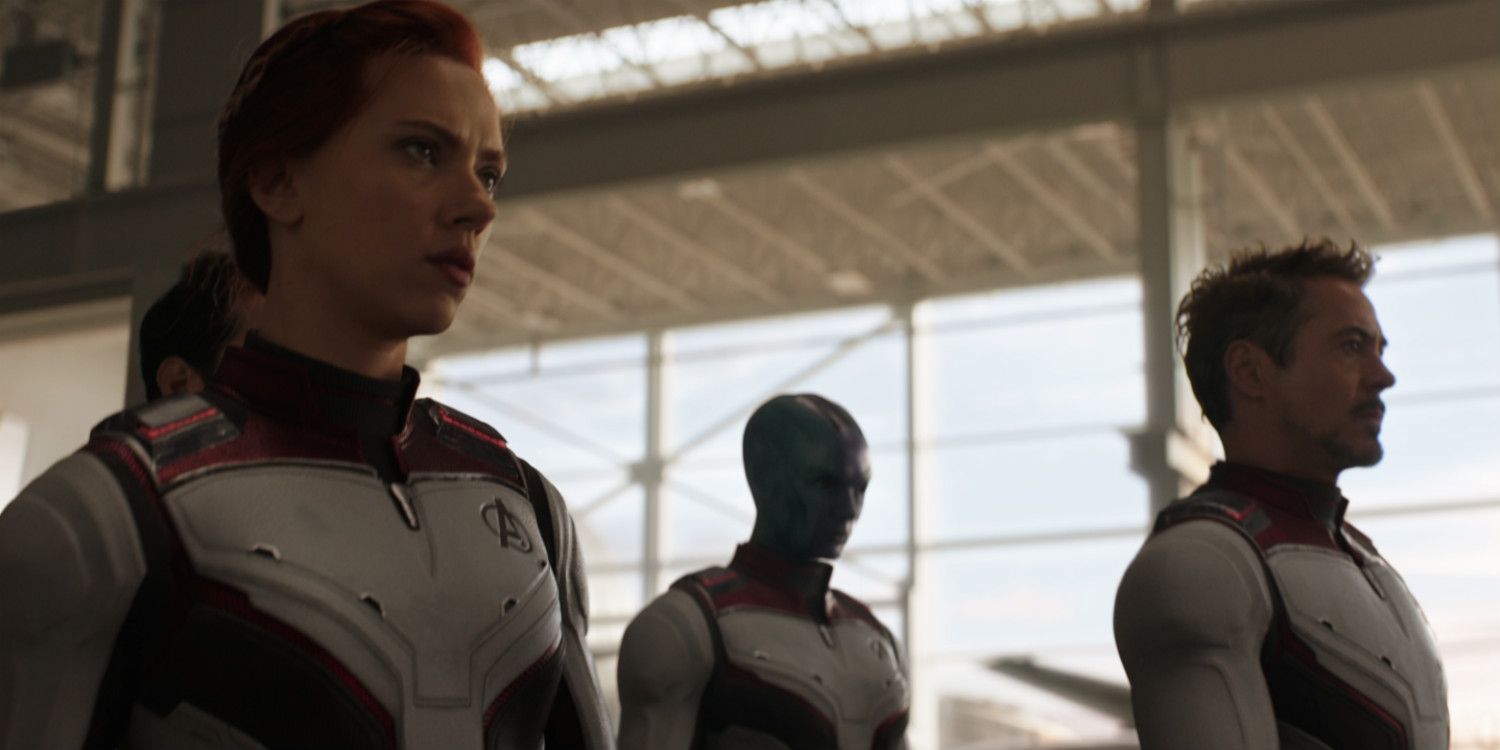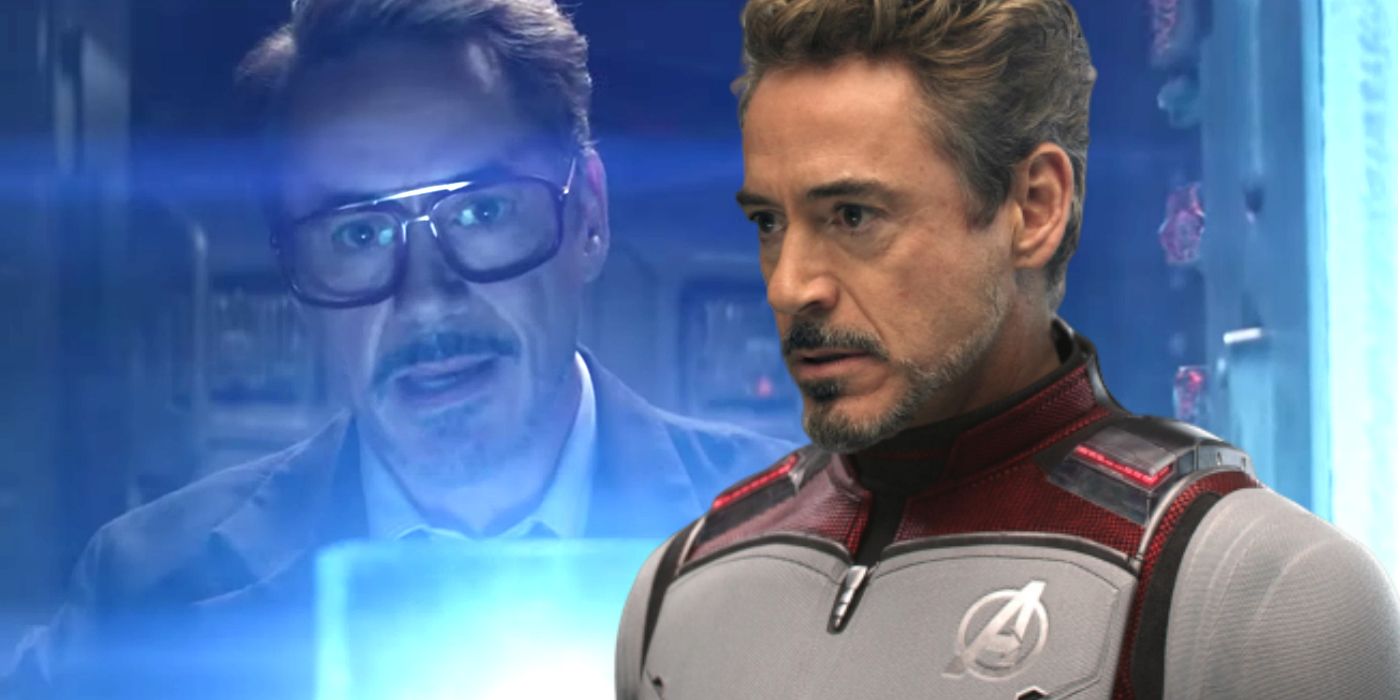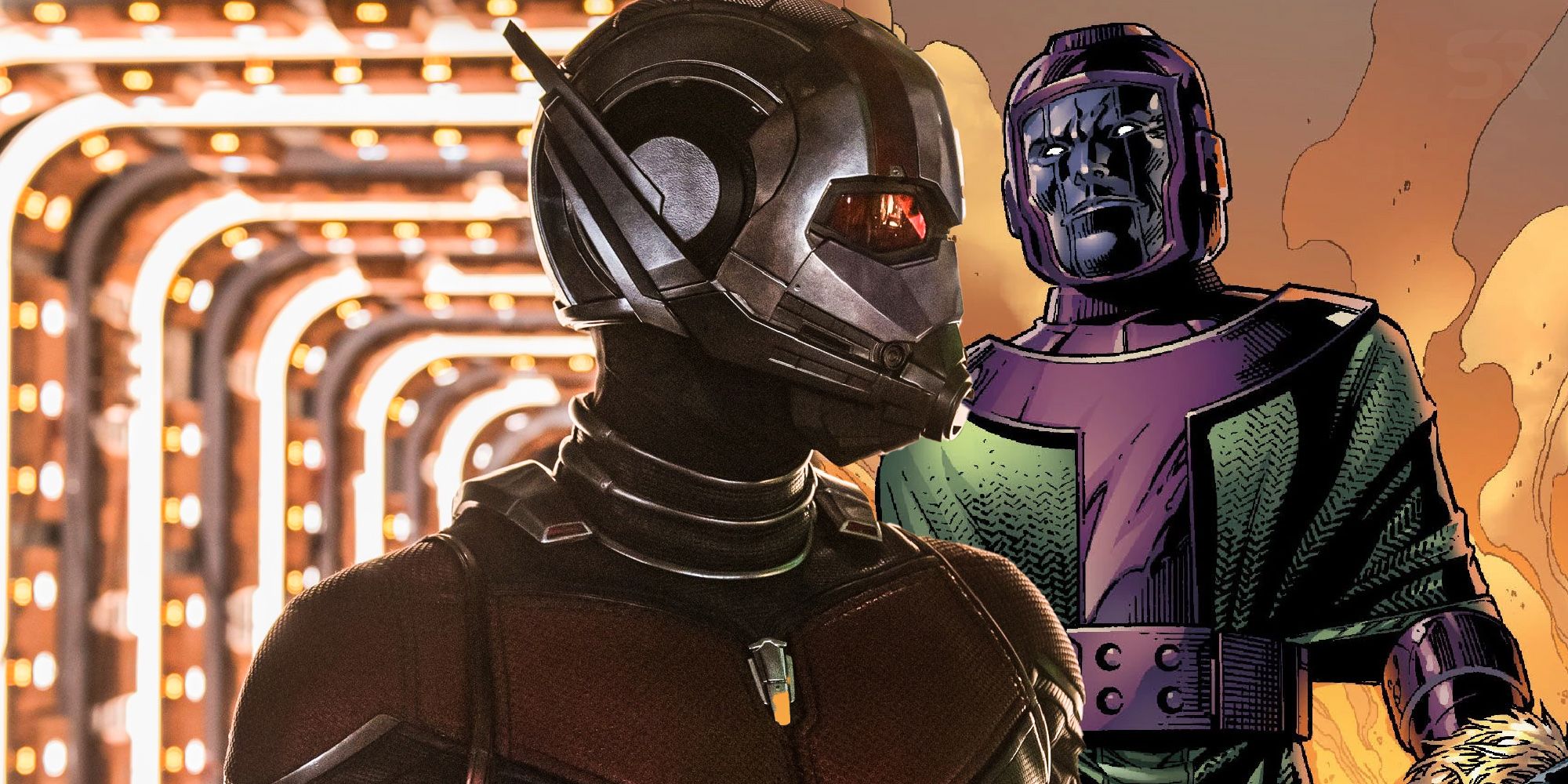Marvel villain Kang the Conqueror is expected to arrive in the MCU sooner rather than later, and he could be an unintended consequence of the Quantum Realm-engineered time travel in Avengers: Endgame. Serving as the culmination of the Infinity Saga, and rounding out the stories of key characters such as Iron Man (Robert Downey Jr.) and Captain America (Chris Evans), Endgame was an epic conclusion to over a decade's worth of storytelling.
However, for all the fourth Avengers movie was about endings, it also setup a lot of the MCU's future. Much of Marvel's Phase 4 is because of Avengers: Endgame, be it the continuation of Thor's story, the search for a new Captain America in Falcon & The Winter Soldier, or Doctor Strange's continued exploration of the multiverse. Because of that, it also makes sense that it'd be setting up some new villains too, and one of the biggest is Kang the Conqueror, who'll reportedly be in Ant-Man 3 and played by Jonathan Majors.
Kang is an antagonist who has been rumored to join the MCU for a while now, and he's also a villain who is basically defined by time travel, so it would make a lot of sense for Avengers: Endgame to have set him up (or at least be retconned to have done so). On top of that, making him a result of the Avengers' own actions adds an extra layer to someone who should be an already great foe. Here's how Endgame and its time travel might've created Kang the Conqueror.
Why Avengers: Endgame Is So Important To Kang
Although there had been some dealings with temporalities in the MCU prior to it, such as Doctor Strange's use of the Time Stone and Ant-Man's brief exploration of the Quantum Realm, Avengers: Endgame fully introduced time travel to the MCU. Thanks to a combination of the Quantum Realm, Pym particles, and Tony Stark's own genius, the Avengers were able to find a way to move relatively safely through time in order to get the Infinity Stones before Thanos.
That's important for Kang the Conqueror, because it introduces the most important element needed to bring him into the MCU. Born in the 30th Century, Kang is a descendant for Reed Richards in Marvel Comics, and a genius who is able to conquer his own world and, moving through time, several others across history. Indeed, Kang's time travelling even has similar consequences to that of Endgame's; much like the time travel of the Avengers created a branched reality each time they meddled with the past, so too does Kang's time travel end up effectively creating a new version of himself - several of whom have been fleshed out into their own distinct personas. So not only does Endgame introduce time travel, but it's already introduced concepts similar to that of Kang the Conqueror himself.
The Avengers' Time Travel Has Consequences In Phase 4 (& Beyond)
It's not just that Avengers: Endgame saw the team create a means with which Kang can be introduced, but that it's already clear their time travel will have some serious consequences in the MCU's Phase 4 and even beyond it. This isn't uncommon, as the results and complications of time travel are often a part of such storylines, and there are plenty of warnings in Endgame from the likes of the Ancient One (Tilda Swinton) as to just how things can go terribly wrong. This is being evidenced most clearly in Loki, which will follow the God of Mischief in a new branched reality after his escape with the Space Stone in Endgame. It's expected that will see the villain travelling across time himself in his own universe, catching the intention of the Time Variance Authority, which means bigger changes to the timeline springing from those in Endgame.
Similarly, Doctor Strange in the Multiverse of Madness and WandaVision are both likely motivated at least in part by Avengers: Endgame. As with Loki, these are dealing with the idea of alternate dimensions, and it's expected that Loki will directly connect to Doctor Strange 2. While that'll take things much further still, it is again all stemming from the decision to meddle with the timeline in Avengers: Endgame. It's easy to imagine these consequences stretching out further too, especially as there's a sense of a butterfly effect taking place, which each change leading to a bigger one. With multiversal madness being unleashed in Doctor Strange, and then Ant-Man 3 (whenever it releases) further exploring the Quantum Realm, there's the potential for even greater reverberations from Endgame's time travel.
Tony Stark's Technology ALWAYS Has Ramifications On The Future
Tony Stark was key to Avengers: Endgame's time travel, being the one among them smart enough to figure out exactly how to make it work. Despite Iron Man's death in Endgame, Marvel Phase 4 will continue to explore his complicated legacy through characters such as Spider-Man, but it can also do so through his time travel technology - which is par for the course when it comes to Tony Stark and major consequences in the MCU. While Iron Man's genius is celebrated, it's also extremely dangerous, and the Marvel movies have shown countless times just how his tinkering and attempts at advancements for the world can backfire upon him.
From the beginning of his MCU journey, this has always been the case for Iron Man, whether it's really Tony's fault or not. Obadiah Stane attempted to use the arc reactor tech for his Iron Monger suit; Stark weapons have been sold all over the world; his desire to push technological defenses led to Ultron, who almost destroyed the entire planet; Iron Man has created multiple other villains, from Whiplash and Killian to Vulture and Mysterio; and even the Avengers themselves, in part a Tony creation, have caused damage while doing good. The fact that Tony's inventions always have some level of blowback is an intrinsic part of his character arc in the MCU, so it makes sense that him basically inventing time travel in Endgame would do so too. That'll be seen in part with the aforementioned movies and shows like Loki and Doctor Strange 2, but something even bigger and more direct, like Kang the Conqueror, would be fitting, and allow for one last Iron Man-created villain in the MCU.
How Time Travel Brings Kang The Conqueror To The MCU
With time travel in play, then it seems only a matter of, well, time before someone else utilizes it to come back from the future and into the present day of the MCU, and apparently that someone is going to be Kang. In Marvel Comics, part of Kang's discovery of time travel comes from finding and using the technology developed by Victor von Doom. While Doom may be in the MCU sooner rather than later, and perhaps emerge as another major threat like Kang, that story doesn't quite make sense for the timeline the universe is working on, nor the fact that the time travel exists before Doom does.
However, it would be easy to replace Doom in that story with Iron Man. If Kang (or at that point, Nathaniel Richards) comes across the workings of Tony Stark and his inventions for time travel, then he could combine that with his own genius to make time travel possible for himself, even without Pym Particles (though it's also possible the Quantum Realm will be involved). For a conqueror like Kang who wants to face the greatest challenges possible, then it makes sense he'd come to the present day of the MCU where, even without Iron Man (whom he may hope to find), he'd still potentially be coming up against Earth's Mightiest Heroes, especially if, as theorized, Kang is the villain of The Avengers 5. Even in death, Tony Stark's technology from Avengers: Endgame offers the best way to bring Kang into the MCU.











